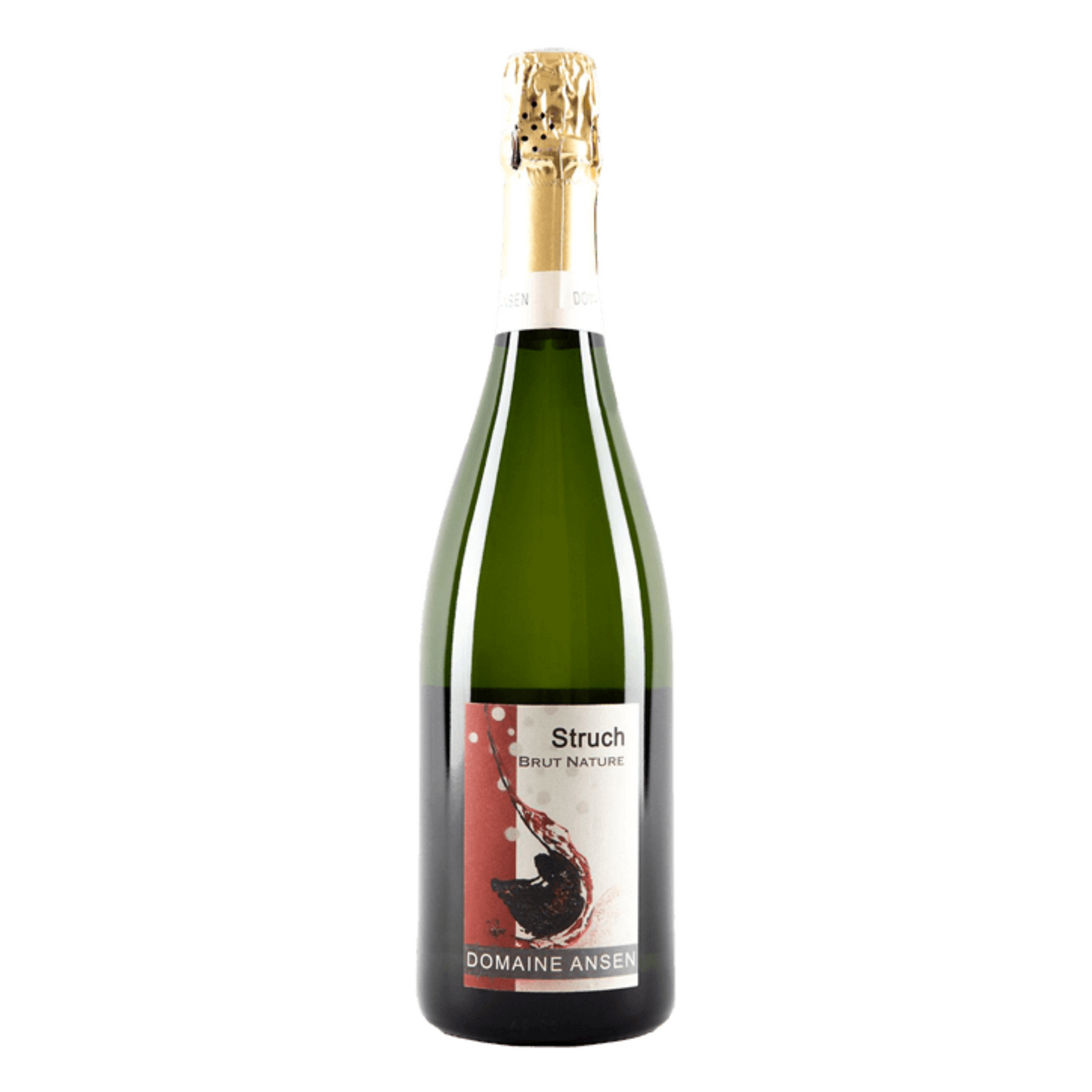Domaine Ansen Cremant d'Alsace Blanc de Noir 2020 (750 ml)
Domaine Ansen Cremant d'Alsace Blanc de Noir 2020 (750 ml)
Couldn't load pickup availability
The Domaine Ansen Cremant d’Alsace Struch Brut is a Blanc de Noir of Pinot Noir from a small plot of vines planted on a southward facing hill called Struch. The weather in 2016 required a lot of attention in the vineyards, but by the time harvest came, the weather spiked and allowed for some very healthy grapes. The fruit was pressed from whole bunches into stainless steel tanks and a very neutral yeast was used to aid in fermentation in order to keep the temperatures very low and the aromatics and phenolics of the wine present. On April 8th, 2017, the wine was bottled and then after 30 months of rest, was disgorged and given a dosage from its own grape’s residual sugar of 6 g/l. The clay and limestone soils are difficult on this hill, and force the vine roots to go very deep for nutrients, therefore showing great elegance and length in the final wine. Creamy and delicious Pinot fruit is expressed immediately on the palate with a touch of cherry liqueur and vanilla, while leading to a crunchy stony mid-palate of graceful minerality.
In the northern most hills of the Alsace AOC of eastern France, Domaine Ansen has been a family of grape growers, fruit orchard farmers, cattle raisers, and all things in between, for over 400 years. In the mid-nineties, Daniel Ansen set out to learn the trade of winemaking, spending time not only in Alsace, but also Australia, the United States, and Bordeaux, where he went to enology school. In 2010 he moved back into the old family house with his wife Karine and took over the fields from his father, looking forward to converting everything to organic viticulture, and starting to make wine from their own grapes that had always gone to a local cooperative. Slowly expanding in Alsace's divers land, Daniel farms 8.5 hectares, in 40 plots (some are as small as 2 rows of vines), to 8 varieties, on 3 different soil types (black clay, limestone, and sandstone). Careful hand harvesting, the use of stainless steel for natural fermentations and aging, and very little (to zero) sulfite use in the finished wines, he lets each grape express their natural characteristics to the fullest, be it laser acidity, sweet ripe fruit, or a combination of both.


